Back
How to Stop Bad Breath While You TalkOct 24
Oct 24
Discover expert tips, daily habits, and smart effective brushing solutions like BrushO to help you combat bad breath while talking.

Why Does Bad Breath Happen When You Talk?
Many people feel that their breath becomes worse, especially while speaking, in close proximity. This isn’t just in your head—talking dries out your mouth, reducing saliva that naturally helps cleanse bacteria. Without enough saliva, odor-producing bacteria thrive.
Common causes of bad breath while talking include:
- Dry mouth (especially when nervous or speaking a lot)
- Skipping morning or evening brushing
- Poor tongue hygiene
- Dehydration
- Gum disease or untreated cavities
- Medical conditions (e.g., sinus issues, reflux)
Signs You’re Brushing Wrong (And It Affects Your Breath)
Skipping Areas Like the Tongue or Back Molars
If you don’t brush your tongue or ignore the back corners of your mouth, you’re leaving odor hotspots untouched.
Not Changing Toothbrush Heads Regularly
Worn-out bristles harbor bacteria and are less effective at removing plaque and odor-causing buildup.
Using Manual Brushes Without Feedback
Without any guidance, it’s easy to miss areas—especially the gumline or inner teeth surfaces.
How to Stop Bad Breath While Talking
1. Use a Smart Toothbrush That Tracks Every Spot
Traditional brushing relies on guesswork. A smart electric toothbrush like BrushO uses:
- 16-zone AI monitoring
- Smart pressure detection
- Tongue-cleaning reminders
- Weekly brushing reports
This ensures complete oral coverage and avoids overbrushing or under-cleaning.
✅ BrushO’s AI feedback loop helps detect missed zones and reminds you to clean odor-prone areas like the tongue, cheeks, and molars.
2. Don’t Skip the Tongue
Your tongue harbors millions of bacteria, which produce sulfur compounds (the main cause of bad breath). Always brush or scrape your tongue, especially before social events or speaking engagements.
3. Stay Hydrated (And Chew Sugar-Free Gum If Needed)
A dry mouth means bad breath. Keep a water bottle nearby and stay hydrated. If you’re in a meeting or can’t drink water, chew sugar-free gum to stimulate saliva flow.
4. Avoid Strong-Smelling Foods Before Conversations
Garlic, onions, and certain spices release compounds absorbed into your bloodstream—meaning they’ll resurface even after brushing. For important moments like interviews or dates, avoid these triggers beforehand.
5. Rinse Mid-Day (But Skip Alcohol-Based Mouthwashes)
Mouthwashes can help—but only if they’re gentle and alcohol-free. Alcohol dries your mouth, which worsens bad breath in the long run.
Look for a hydrating, antibacterial rinse you can use after lunch or coffee.
6. Visit a Dentist Regularly
If bad breath is persistent, it might be a sign of underlying gum disease, decay, or digestive issues. A dentist can help rule these out and recommend deeper cleanings if needed.
How BrushO Solves Bad Breath at the Source
BrushO’s smart brushing system goes beyond just cleaning:
✅ Zone-by-zone coaching helps ensure you brush your entire mouth
✅ Tongue-cleaning tracking reminds you to remove bacteria buildup
✅ Weekly brushing reports allow you to check consistency and progress
✅ Gentle yet effective sonic power removes plaque from deep pockets
With consistent use, users report fresher breath, cleaner teeth, and more confidence when speaking.
Final Thoughts: Confidence Starts With Fresh Breath
Bad breath during conversation can be uncomfortable, but it’s 100% preventable with the right habits and tools. From hydration to AI-powered brushing, small changes can make a huge difference.
If you’re tired of breath anxiety when speaking, maybe it’s time to let BrushO guide your brushing routine.
Recent Posts

How to Disinfect Your Toothbrush
Keep your mouth clean by making sure your toothbrush is, too.

Why BrushO Offers Free Brush Heads
BrushO doesn’t just promise free brush heads for life — it rewards you for doing what’s best for your health: brushing daily.
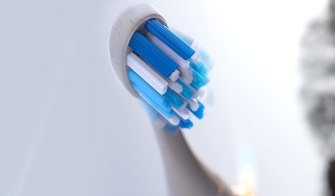
How to Reduce Dental Anxiety and Make Brushing Easier
Dental anxiety isn’t just about visiting the dentist—it can affect your daily oral hygiene, especially brushing. If brushing your teeth feels stressful, overwhelming, or even scary (especially for kids or those with sensory sensitivity), you’re not alone.
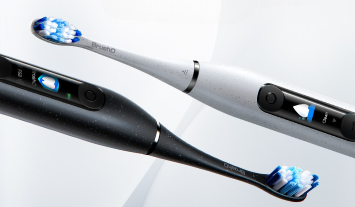
How to Master Smart Brushing with AI‑Powered Toothbrushes
Smart toothbrushes are transforming the way we care for our teeth.

How to Maximize Your Toothbrush Battery Life
Wondering why your electric toothbrush battery drains so quickly? Or how to make sure your AI-powered brush like BrushO performs at its best for years?
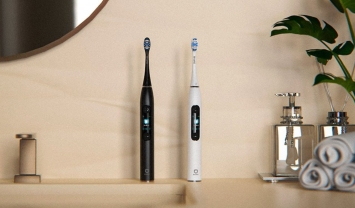
Are You Overpaying for a Toothbrush?
If your toothbrush costs a small fortune but doesn’t make your teeth feel cleaner, you might be paying more than you should. Here’s how to tell if you’re getting true value — and how to choose smarter.
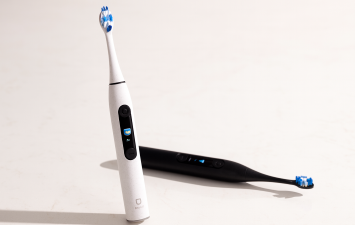
How to Switch from Manual to Electric Brush
Thinking of switching from a manual to an electric toothbrush?
Does Brushing Longer Mean Cleaner Teeth?
Many people believe that brushing longer automatically means a cleaner mouth—but is that true?
How to Brush Smarter, Not Harder
Brushing your teeth harder doesn’t mean brushing them better. In fact, it might be harming your gums and enamel.
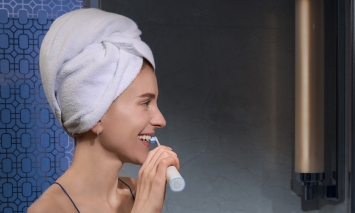
How to Make Your Diet Protect Your Teeth
Maintaining a bright, healthy smile isn’t just about brushing and flossing — your diet plays a huge role in oral health. The foods and drinks you consume every day can either help protect your teeth or contribute to decay and gum disease.
